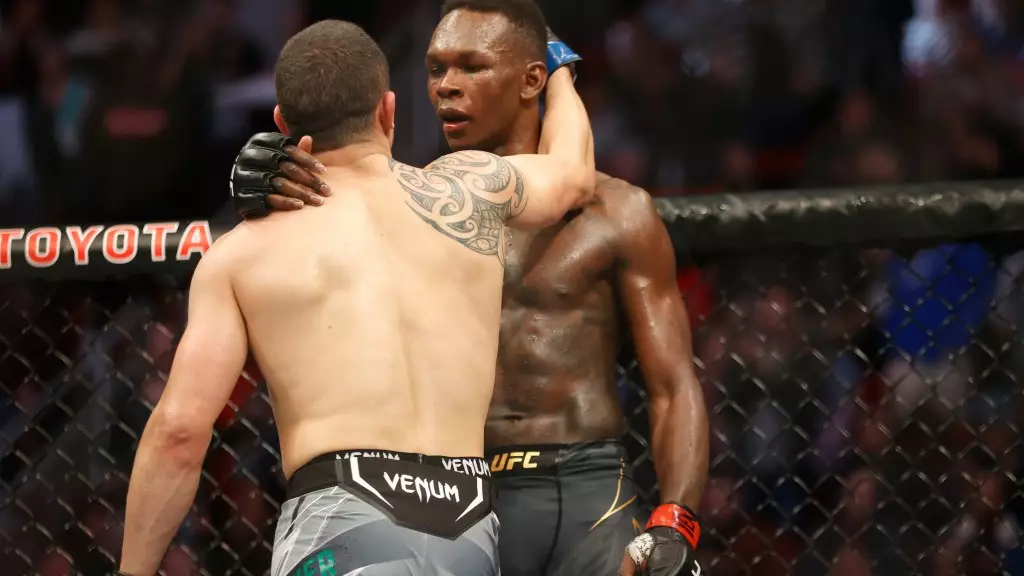In an unexpected turn of events, two of the UFC’s most recognized middleweight fighters, Robert Whittaker and Israel Adesanya, have set aside their fierce rivalry to train together at City Kickboxing, Adesanya’s renowned gym in New Zealand. Both fighters have engaged in intense contests for the UFC middleweight title, with Adesanya winning both bouts, thus establishing a rivalry steeped in competition and respect. However, Whittaker’s recent decision to reach out for collaboration underscores the dynamic nature of martial arts, where athletes continually seek improvement through diverse training methods.
Whittaker’s motivation to train alongside Adesanya stems from a desire for fresh perspectives and techniques. As he explained in an interview with the New Zealand Herald, the decision emerged from a recognition of the necessity for diverse training partners. “We came to the conclusion we needed more bodies,” Whittaker noted. This realization reflects a broader trend in combat sports where fighters are increasingly prioritizing training diversity to sharpen their skills and adapt to various fighting styles.
Turning Rivals into Allies
Reflecting on their past encounters, the notion of training together would have once seemed impossible. Whittaker admirably acknowledged the irony of his situation, stating, “There is no way I thought we’d be here breaking bread.” Such sentiments highlight a maturity among elite athletes, where the focus shifts from rivalry to collaborative growth. In an era where personal rivalries in sports can often overshadow the essence of athletic improvement, Whittaker and Adesanya’s partnership is a refreshing change, one that could inspire other fighters to engage with their competitors in a productive manner.
Moreover, Whittaker’s willingness to be open-minded about working with someone he previously regarded as an adversary showcases personal growth and evolution. Despite his past disdain for his rival, Whittaker is embracing the opportunity to expand his skill set: “I’ve been in the game so long, he’s been in the game, we know what the stakes are.” This perspective signifies a shift in mental approach that many athletes can learn from, embracing personal development over petty disputes.
Impact on Upcoming Fights
The timing of this training relationship is particularly pertinent, as both fighters are navigating critical junctures in their careers. Adesanya is eyeing a comeback after two consecutive losses, preparing to face Nassourdine Imavov in February. The mutual understanding and shared knowledge gained from their training can undoubtedly benefit both athletes as they strive for success in the octagon. Whittaker, who is also exploring future matchups, gains vital insights into another elite fighter’s approach, enabling him to enhance his own strategies.
The reunion of Whittaker and Adesanya on the training mats signifies a positive shift in the MMA landscape. Their story serves as an important reminder that rivalry does not have to equate to animosity. Instead, it can be transformed into opportunities for growth, with athletes benefiting from collaboration rather than competition alone. This emerging trend of cooperation among formerly warring rivals may very well redefine traditional boundaries within the sport, fostering a more inclusive and supportive environment for fighters.

